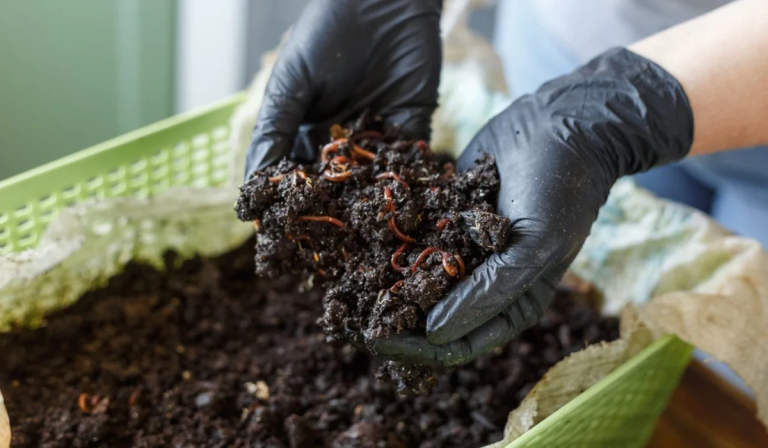
Procedure Requirements
- Earthworms: These remarkable creatures play a crucial role in vermiculture. They break down organic materials, converting them into nutrient-rich vermicompost. Earthworms are nature’s composting experts, adapting to various environments. Whether epigeic, endogeic, or anecic, they efficiently process organic matter.
- Feedstock: The process requires suitable raw materials, such as plant residues and animal excreta. Achieving a balanced trash-to-dung ratio of 1:1 ensures optimal decomposition. Green waste from farms, kitchens, and forests is the primary feedstock.
- Moisture: Maintaining a minimum moisture level of 40% is essential for successful vermicomposting. Water provides the necessary environment for earthworms to thrive and break down organic matter.
Raw Components
Organic green waste from farms, kitchens, and forests is the primary feedstock. Achieving a balanced trash-to-dung ratio of 1:1 ensures optimal decomposition. The ideal feedstock should contain approximately 75% water by volume and have a density of less than 640 lb/ft³. Additionally, it must be free from any traces of chemicals, pesticides, and tannins.
Ideal Characteristics of Feedstock
- Water Content: The raw materials should contain approximately 75% water by volume. Adequate moisture ensures earthworm activity and efficient decomposition.
- Density: Ideally, the density should be less than 640 lb/ft³. A loose, well-aerated feedstock promotes earthworm movement and decomposition.
- Chemical-Free: The feedstock must be free from chemicals, pesticides, and tannins. Earthworms thrive in a clean, natural environment.
Earthworms: Nature’s Composting Experts
- Habitat: Earthworms can be epigeic, endogeic, or anecic, adapting to various environments. Their presence enhances soil structure and nutrient availability.
- Eisenia fetida: Among the most widely used earthworm species, Eisenia fetida boasts a fast metabolism. Within 45–50 days, they efficiently break down organic materials, producing nutrient-rich vermicompost. These voracious eaters transform waste into valuable soil amendments.
Vermicomposting offers a sustainable solution for enriching soil and promoting healthy plant growth. By following the right procedures and understanding the critical role of earthworms, we can create nutrient-rich compost that benefits both our gardens and the planet. Let’s embrace this natural process and contribute to a greener, more sustainable future!


